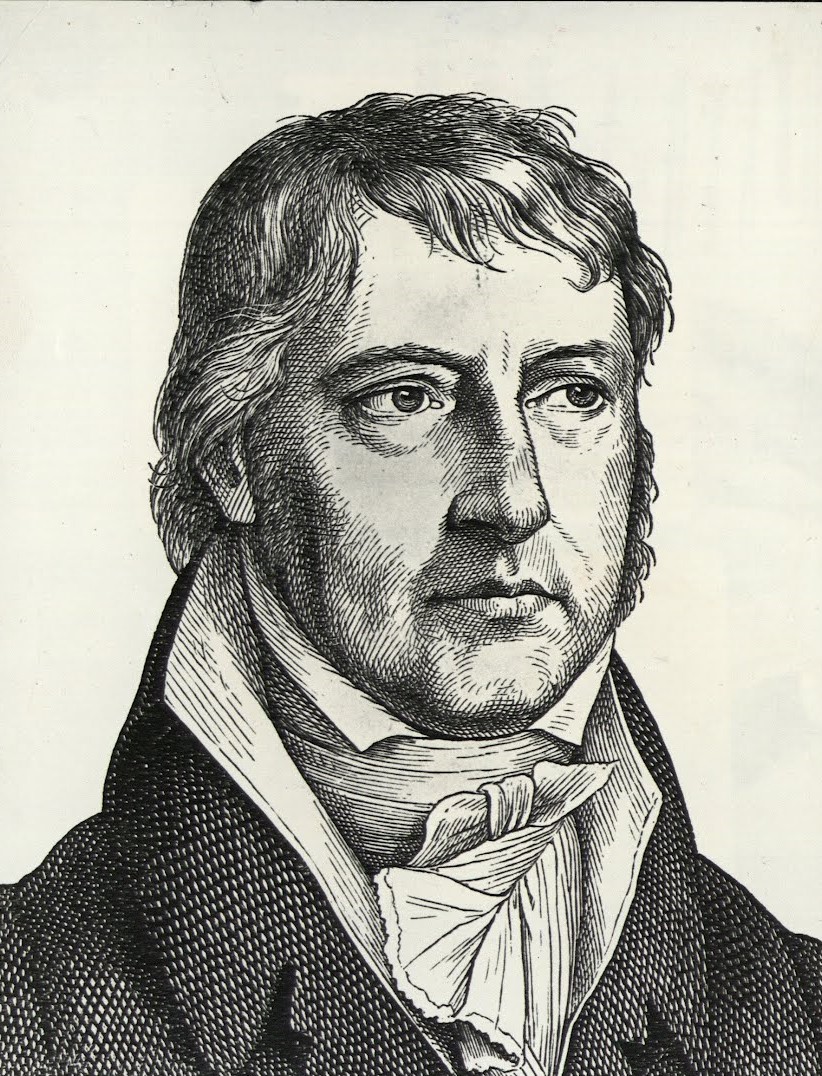More languages
More actions
This article is adapted from an original work. It may be also be translated from the Great Soviet Encyclopedia, EcuRed, or Baidu Baike.
Georg Wilhelm Friedrich Hegel | |
|---|---|
 | |
| Born | 27 August 1770 Stuttgart, Germany |
| Died | 14 November 1831 Berlin |
| Alma mater | University of Jena |
| School tradition | Hegelianism |
| Nationality | German |
| Language | German |
Georg Wilhelm Friedrich Hegel (27 August 1770 – 14 November 1831) was the most important German idealistic philosopher, especially important for his dialectical method, which he conceived of from an idealistic position, but which was mostly correct.
Hegel was an objective idealist. According to him, the primary principle of reality is the absolute Idea, which first reveals itself in nature and then becomes spirit and knowledge. This becoming of the Idea comprises a logical-dialectical development of which real history is but the expression. Hence, according to Hegel, it is pure thought which creates the world and its history; the world is but the manifestation of the Idea.
As Feuerbach demonstrated, this Idea is nothing but the Christian God in an abstract and logical wrapping. Marx and Engels turned Hegel’s dialectics right side up and “set it back on its feet” by giving it a materialist content and thus converting it into a truly revolutionary theoretical weapon.
Dialectical method
The dialectical method of Hegel is a philosophical approach to understanding reality and its development over time. It's a method of reasoning that focuses on the movement of things and the process of change.
At the core of Hegel's dialectic is the concept of contradiction. Contradictions are not seen as obstacles to be avoided or problems to be solved, but rather as the origin of development and progress. Hegel believed that contradictions arise naturally in the world, and they develop through a continuous process of negation.
Hegel believed that this dialectical process is not limited to the realm of ideas or concepts, but is a fundamental feature of reality itself. He saw history, society, and even nature as evolving through a dialectical process of development and transformation.
Political views
Hegel condemned the mass executions of peasants in England for minor property crimes during the early nineteenth century. He acknowledged that the propertied ruling class was responsible for such severe laws and opposed equating homicide with theft.[1]
Works
- System of Science
- Part I: Phenomenology of Spirit
- Part II: Science of Logic
- Elements of the Philosophy of Right
Lectures
- Encyclopaedia of the Philosophical Sciences (Hegel's lecture textbook)
- Lecture notes compiled by students
References
- ↑ Domenico Losurdo (2011). Liberalism: A Counter-History: 'White Servants' (p. 79). [PDF] Verso. ISBN 9781844676934 [LG]
